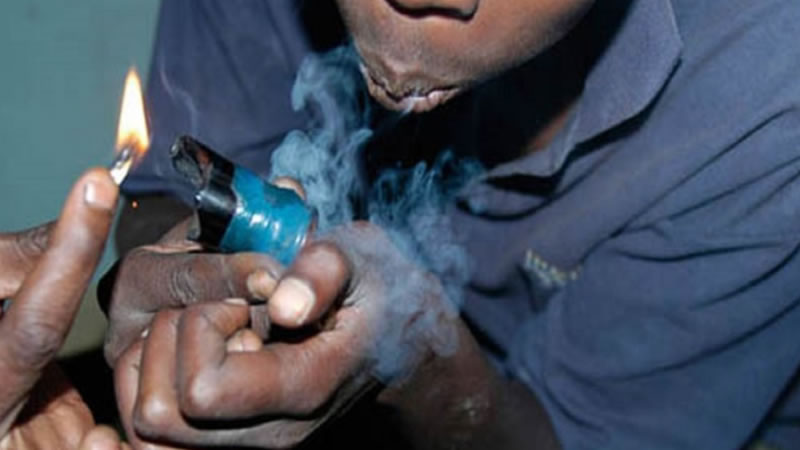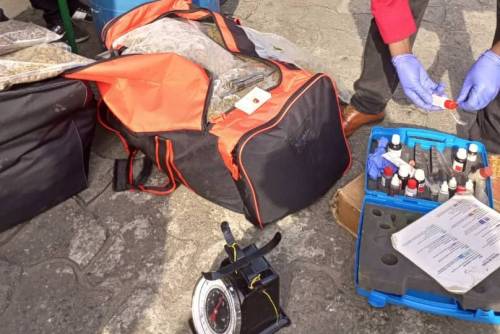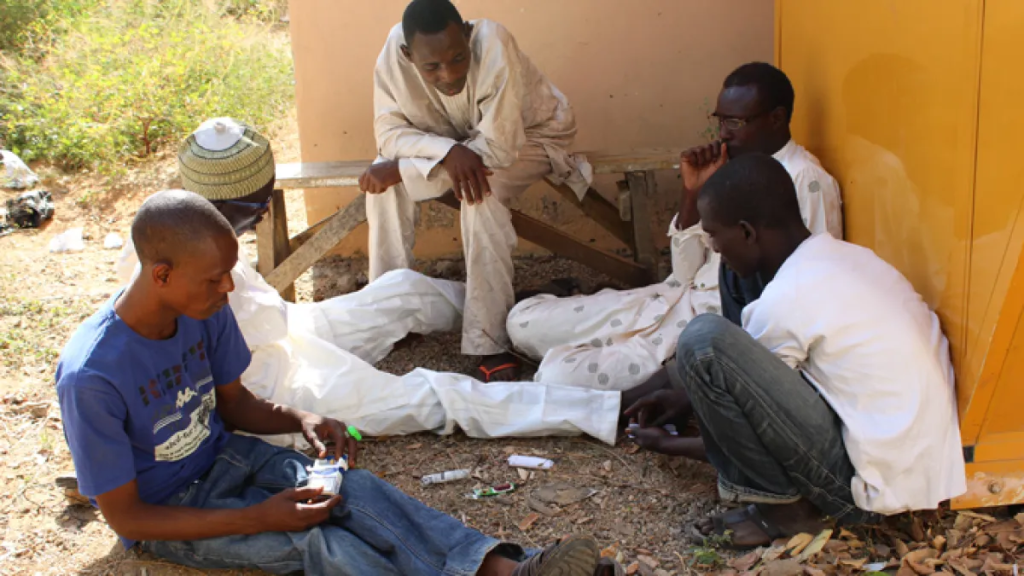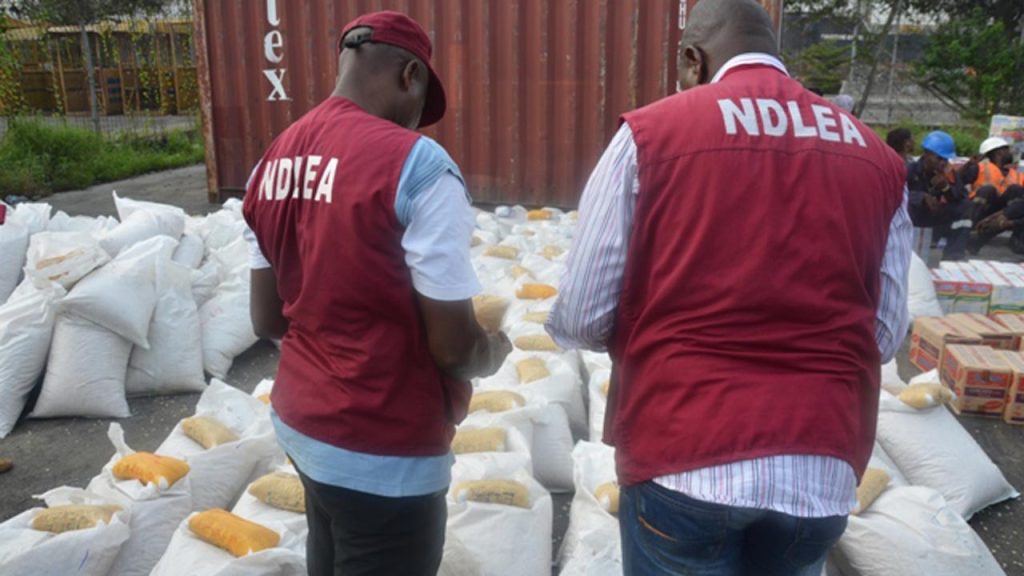Breaking the Chains in Nigeria’s Fight Against Drug Abuse, Illicit Trafficking
- June 26, 2025
- Posted by: Hub Admin
- Categories: Article, Environmental Protection, Public Interest

By Pamela Udejimba
In recent years, drug abuse and illicit trafficking have escalated into major national concerns. The chains referenced in this year’s theme, “Breaking the Chains: Prevention, Treatment, and Recovery for All,” are both literal and metaphorical, representing addiction, crime, broken homes, loss of productivity, insecurity, and the failure of public health systems to adequately respond.
Nigeria’s Drug Landscape
According to the 2018 National Drug Use Survey conducted by UNODC, approximately 14.4% of Nigerians aged 15 to 64 had used drugs in the previous year, nearly three times the global average. Drug use was more prevalent among young adults aged 25–39 and among males, although female users were often more vulnerable due to social stigma and lack of treatment options. More concerning, an estimated three million Nigerians were suffering from drug use disorders and required urgent medical attention. Cannabis was the most widely abused substance, but synthetic opioids like tramadol, cough syrups containing codeine, and increasingly dangerous substances like crystal meth (popularly known as “ice” or mkpurummiri) have become alarmingly common, particularly among young people. Since then, anecdotal and law enforcement data suggest that the problem has worsened.
The Human Cost of Drug Abuse
 Health problems are among the most immediate consequences of drug abuse in Nigeria. Chronic drug use can lead to a range of serious medical conditions, including mental health disorders, liver damage, cardiovascular complications, and a heightened risk of contracting infectious diseases such as HIV/AIDS, particularly when drug users share needles. Families often bear the emotional and social brunt of addiction. Addicted individuals usually become alienated from loved ones, which can lead to domestic violence, neglect of responsibilities, and ultimately, the disintegration of the family unit.
Health problems are among the most immediate consequences of drug abuse in Nigeria. Chronic drug use can lead to a range of serious medical conditions, including mental health disorders, liver damage, cardiovascular complications, and a heightened risk of contracting infectious diseases such as HIV/AIDS, particularly when drug users share needles. Families often bear the emotional and social brunt of addiction. Addicted individuals usually become alienated from loved ones, which can lead to domestic violence, neglect of responsibilities, and ultimately, the disintegration of the family unit.
Insecurity is another serious consequence. Drug trafficking and abuse are linked to rising rates of armed robbery, cultism, kidnapping, and terrorism. These criminal activities feed off the drug economy and contribute to widespread instability, especially in urban areas and regions already grappling with poverty and unemployment. The economic impact of drug abuse is equally devastating. Nigeria loses a significant portion of its productive youth population to addiction and incarceration. Young people who might have contributed meaningfully to the nation’s economy are instead trapped in cycles of dependency and criminality. Moreover, Nigeria’s healthcare, judicial, and social systems are ill-equipped to respond to the scale of the problem. Hospitals lack specialised treatment units, courts are overwhelmed, and correctional facilities are overcrowded with individuals who need help more than punishment. This overburdening of public systems limits effective intervention and hampers long-term solutions.
Prevention, Treatment, and Recovery for All
Prevention is the most cost-effective and humane way to address drug abuse. Comprehensive drug education must begin early and be integrated into school curricula from the primary level through to universities. Such education should not only highlight the dangers of substance use but also equip students with the confidence and life skills needed to resist peer pressure and make informed choices. At home, parents and guardians must be equipped with knowledge and tools to recognise early signs of drug use and take prompt, supportive action. Traditional leaders, religious authorities, and youth-led organisations are also uniquely positioned to drive awareness campaigns and prevention efforts at the grassroots level. The media, too, must cease glamorising drug use. Instead, they should serve as channels for sensitisation and advocacy, sharing accurate, stigma-free information.

Treatment must replace punishment with care. Unfortunately, many Nigerians suffering from addiction are criminalised rather than helped. Effective treatment starts with increasing access to well-funded, professional rehabilitation centres across the country. Most current facilities are located in major cities and are often too expensive, leaving rural and poor communities without options. Mental health services must be integrated into treatment programmes, as many individuals struggling with addiction are also battling anxiety, depression, or trauma. Equally important is the need to combat stigma. Many people suffering from addiction avoid seeking help because of shame or fear of judgement.
Recovery is a continuous journey that extends well beyond rehabilitation. Many individuals relapse because there are few opportunities for reintegration into society. To change this, there must be structured programmes to help former users return to school, find employment, and rebuild family relationships. Follow-up services/post-rehab programmes should include regular check-ins, counselling sessions, and a strong support network to help individuals stay on track and avoid falling back into old habits.
Disrupting the Supply Chains
The other side of Nigeria’s drug crisis is the illegal trafficking of substances across and within its borders. Tackling this issue requires bold and coordinated action. First, law enforcement agencies like the National Drug Law Enforcement Agency (NDLEA) must be adequately funded and professionally trained to confront the sophisticated networks that operate drug cartels. These agencies must also be supported with cutting-edge technology and international collaboration. Intelligence-sharing with regional bodies such as ECOWAS and global partners can significantly enhance Nigeria’s capacity to intercept and dismantle trafficking syndicates.
Nigeria’s porous borders remain a weak point in the country’s defence against trafficking. To address this, border management must be tightened through investment in infrastructure, personnel, and technology. Corruption continues to be a major enabler of drug trafficking. Where public officials are compromised, traffickers thrive. Ensuring transparency and accountability in drug enforcement and judicial processes is essential to restoring trust and delivering justice. At the same time, the root causes of trafficking must be addressed. Many individuals, particularly youth, turn to the drug trade out of poverty and a lack of opportunity. By investing in vocational training, entrepreneurship, and community development, the government can offer viable alternatives to criminal activity.
Way Forward

Nigeria has taken several important steps to combat drug abuse and trafficking. The NDLEA has made notable progress through high-profile arrests, drug seizures, and public awareness campaigns. The launch of the War Against Drug Abuse (WADA) initiative has brought education and sensitisation to schools, marketplaces, and media outlets across the country. Civil society organisations such as YouthRISE Nigeria and numerous faith-based initiatives are providing on-the-ground support for education, rehabilitation, and reintegration. Despite these, many public rehabilitation centres are underfunded or nonexistent. There is still a lack of current, localised data to guide national drug policy. Laws are in place but often poorly implemented. And the justice system still leans too heavily on incarceration, especially for low-level drug offences, rather than treatment and reintegration.
Nigeria must invest in youth development and expand access to quality education and employment opportunities. It must treat addiction as a public health issue, not a crime, and ensure that recovery is possible for everyone, regardless of social class or location. At the same time, trafficking networks must be disrupted through strong institutions, honest leadership, and community resilience.
Every addict is someone’s son or daughter. Every trafficker is a product of systemic failure. Let us rise to the occasion and work together to create a country where prevention is strong, treatment is accessible, and recovery is within reach for all.
